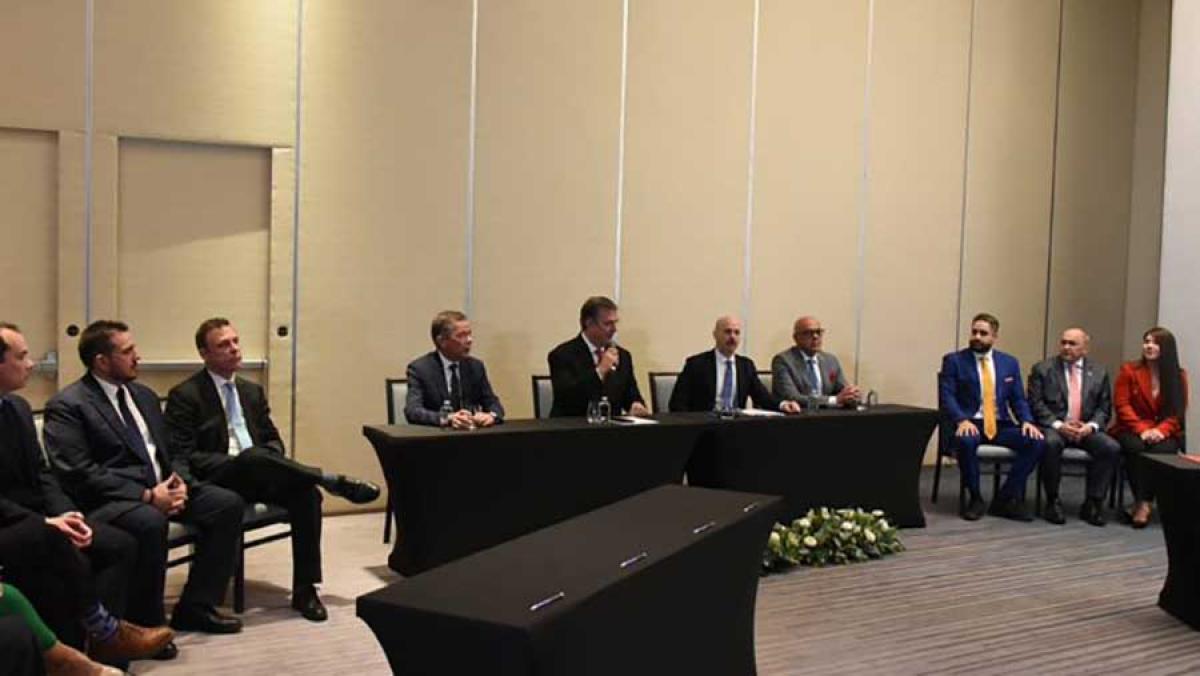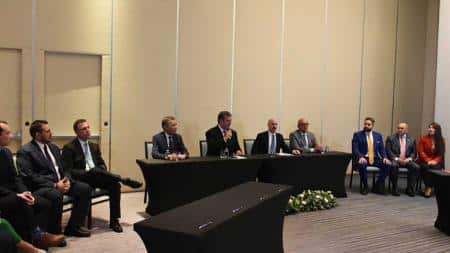 Signing of the agreement in Mexico. Photo: TW @m_ebrard
Signing of the agreement in Mexico. Photo: TW @m_ebrard
The Government and the Venezuelan opposition resumed dialogue in Mexico with the signing of a partial agreement that “will promote important advances for the social protection of the Venezuelan people,” the delegations indicated.
“It is a hope for all of Latin America”stated the Mexican Foreign Minister, Marcelo Ebrard, at the beginning of the act in which the parties signed the text that opens a new round of dialogue, after a pause of more than a year.
Progress and agreements on Venezuela in the dialogues that are carried out in Mexico City pic.twitter.com/8ZLNlvZV84
— Marcelo Ebrard (@m_ebrard) November 26,
“We will celebrate the signing of a partial agreement that will also promote important advances for the social protection of the Venezuelan people, in addition, a verification mechanism will be established within the framework of the aforementioned agreement,” said Norway’s chief negotiator, Dag Nylander, after reading the statement. .
“The agreement has reinforced our conviction that this process is the best way to find a political and inclusive solution for Venezuela,” he added along with representatives of the Venezuelan government, Jorge Rodríguez, and Gerardo Blyde of the so-called Unitary Platform.
Relief for the political crisis
This agreement, In addition to alleviating the political and economic crisis in the Caribbean country, it could pave the way to unfreeze the oil sanctions imposed on it by the United States.who expressed his support for the return of the talks.
Upon arriving in Mexico City this Friday, Rodríguez told the press that one of the objectives of this first round of dialogue is to “sign a broad social agreement with a sector of the Venezuelan opposition.”
He was referring to a pact that would release Venezuelan resources blocked abroad, as the Government had advanced, without specifying where these funds are located or their amount.
The money would serve, among other things, to alleviate the collapse of basic services in a country where poverty strikes eight out of ten people, according to the National Survey of Living Conditions (Encovi), a study published on November 10.
The delegation also arrives in Mexico to “fulfill its role of defending peace, the right we have (…) to live in peace,” added Rodríguez, president of the National Assembly (Parliament).
President Nicolás Maduro mainly demands the lifting of US sanctions on the Venezuelan government, which include an oil embargo and the blockade of assets.
For its part, in these negotiations the Unitary Platform aspires to specify solutions for the “humanitarian crisis, respect for human rights (…) and especially” guarantees for “free and observable elections,” according to a statement.
However, a source linked to the process told the AFP news agency that there is still no consensus on the next elections, which in theory should be held in 2024, and their conditions.
Accusations about Maduro
The opposition accuses Maduro of having fraudulently achieved re-election in 2018. The United States and European countries do not recognize these elections either.
Based on that complaint and invoking his status as leader of Parliament, the opposition leader Juan Guaidó proclaimed himself president of Venezuela in 2019 with the support of fifty countries, led by the United States.
But its image has eroded in the face of a new international scenario that has completely changed in the last year since Russia’s invasion of Ukraine and the powers have been forced to look for alternative energy sources.
On the negotiating table are the permits for the US multinational Chevron to deploy in Venezuela to improve its oil industry and the return of the French oil company Total, opening an alternative source of supply for Western nations boycotting Russian crude.
Venezuela has the world’s largest oil reserves and used to pump more than three million barrels a day. However, the expulsion of most foreign oil companies and US sanctions on the country’s crude reduced output to well below 1 million barrels a day.


